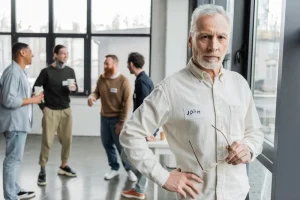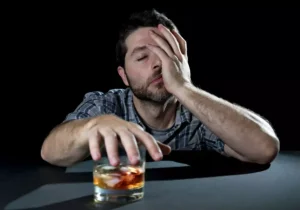
Treating any underlying mental health condition can increase the chances of recovery in these cases. In this article, we’ll delve into ten powerful journeys of individuals who have fought their way back from the brink of destruction. Their stories are raw, honest, and deeply moving, offering insights into the complex nature of addiction and the multifaceted process of recovery.
SAMHSA Releases New Data on Recovery from Substance Use and Mental Health Problems Among Adults in the United States
From the depths of heroin addiction to the grip of alcoholism, from battling dual diagnoses to maintaining long-term sobriety, each journey is a testament to the possibility of change and growth. After discussion with you, your health care provider may recommend medicine as part of your treatment for opioid addiction. Medicines don’t cure your opioid addiction, but they can help in your recovery. These medicines can reduce your craving for opioids and may help you avoid relapse. Medicine treatment options for opioid addiction may include buprenorphine, methadone, naltrexone, and a combination of buprenorphine and naloxone.
Behavioral Therapies and Support Programs

An intervention can motivate someone to seek help for alcohol or drug misuse, compulsive eating, or other addictive behaviors. Psych Central spoke with two people about their experience with recovery from a substance use disorder. Your journey, with all its challenges and triumphs, could be the lifeline someone else needs to start their own path to recovery. As these ten stories show, the road to recovery may be challenging, but the destination – a life of freedom, purpose, and genuine happiness – is worth every step. For those still in the grips of addiction, these stories serve as beacons of hope. They prove that no matter how far one has fallen, recovery is always possible.
- Ironically, the opium that provided him with pain relief would be grown by slaves in many cases.
- Overall, the findings reveal that recovery is real and that with a range of holistic, individualized supports, people with mental health and/or substance use conditions can and do overcome these challenges and live productive lives in our communities.
- Kelly Osbourne says she learned “so many tricks” while she was in rehab to continue her drug habits after she left.
- Temporary returns to use after periods of abstinence are part of many recovery journeys, and it shouldn’t be ruled out that some substance use or ongoing use of other substances even during treatment and recovery might be a way forward for some subset of individuals.
- The well-researched science of behavior change establishes that addictive behavior change, like any behavior change, is a process that starts long before there’s any visible shift in activity.
Genius Minds and the Drugs They Were Addicted To
Let’s explore a story of enduring recovery and the lessons it offers. Today, Michael has been sober for four years and manages his depression through ongoing therapy and medication. He performs at recovery events, using his music to inspire successful drug addicts hope in others battling dual diagnosis. Despite his outward success, Tom’s drinking was slowly eroding his health, relationships, and self-esteem. He was constantly hungover, irritable, and emotionally distant from his family.
Conclusion: The Transformative Power of Recovery
Such triggers are especially potent in the first 90 days of recovery, when most relapse occurs, before the brain has had time to relearn to respond to other rewards and rewire itself to do so. Learning what one’s triggers are and acquiring an array of techniques for dealing with them should be essential components of any recovery program. What is needed https://ecosoberhouse.com/ is any type of care or program that facilitates not merely a drug-free life but the pursuit of new goals and new relationships. There are many roads to recovery, and needs vary from individual to the next. Others do well on their own making use of available community resources. For an adult, a divorce or loss of a job may increase the risk of drug use.

Intervention: Help a loved one overcome addiction
- It’s very important to work with a professional for an intervention to succeed.
- By contrast, most adolescents relapsed in social settings when they were trying to enhance a positive emotional state.
- This doesn’t include the usual gamut of alcohol and cannabis, either.
- Some pointed to rapid improvements in the availability and affordability of medical treatments for fentanyl addiction.
- Regarding feasibility, policy discourse and treatment system designs are often dominated by a national focus.

